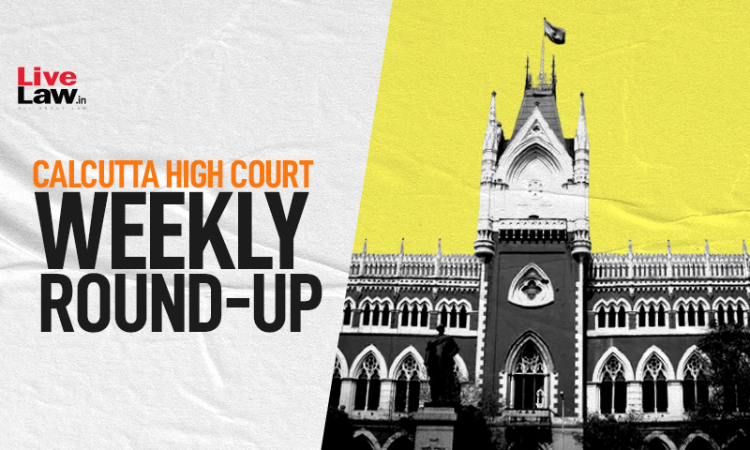Calcutta High Court Weekly Roundup: March 21 To March 27, 2022
Aaratrika Bhaumik
28 March 2022 11:30 AM IST

Next Story
28 March 2022 11:30 AM IST
Citations: 2022 LiveLaw (Cal) 84 To 2022 LiveLaw (Cal) 93Nominal Index 1. Precious Trade Link Private Limited Versus Assistant Commissioner of State Tax 2022 LiveLaw (Cal) 842. Alpine Distilleries Pvt. Ltd v. The State of West Bengal and others 2022 LiveLaw (Cal) 853. Ajoy Kumar Singhania v. The State of West Bengal & Ors 2022 LiveLaw (Cal) 864. Naimuddin Laskar @ Naim v. The State of...
